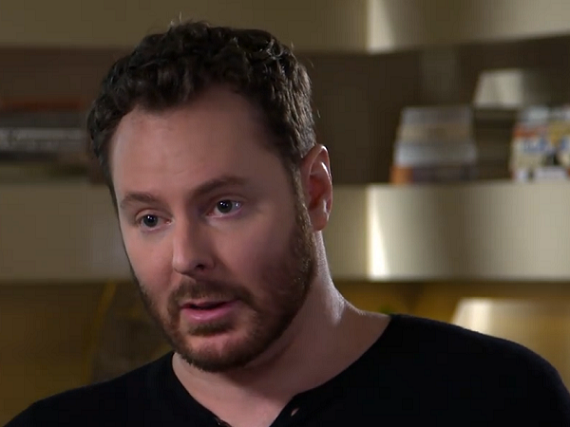

Despite creating Napster, and pretty much kicking off the entire music streaming revolution in the late 90s, Sean Parker will probably always be best known for his role as Facebook’s first president (it doesn’t hurt to be played by Justin Timberlake in a movie).
Even though he’s not an active part of the company anymore, and hasn’t been for a very long time, he still has a relationship with Mark Zuckerberg and has thoughts on the company, some of which he outlined in an interview with Bloomberg.
During the interview, Parker made a really interesting claim: he blamed Facebook, and himself, for the big inflated valuations we’ve been seeing over the past couple of years.
It began when Bloomberg Television’s Emily Chang brought up Parker’s relationship with Uber CEO Travis Kalanick, which led her to ask, “How impressed are you by what Uber has accomplished? Do you think it’s worth $62.5 billion?”
“Do I think any of these companies are worth their private market valuations? I think it’s hard to say. There’s a disconnect between private company and public company valuations. Companies wait too long to go public, and then they don’t do so well on the public markets,” he said, pointing to the markdowns by Fidelity that occurred last year.
The traditional path for a company like Uber, he said, would have been to go public sooner.
“Something happened, post-Facebook, and I may have inadvertently played a role in this occurring, which was the development of this robust secondary market. Where suddenly hedge funds, and private wealth managers, and various sovereign wealth funds, and so forth, began to invest very heavily in private companies,” he said.
“We certainly didn’t start secondary markets, but we encouraged, at Facebook, a robust secondary market. We were much more open to having a secondary market, in part because we had a longer-term vision, and you need to give people an opportunity to take liquidity along the way.”
Facebook went public in 2012, and the data does show that things changed soon after. First, it should be noted that Facebook was only one of two companies to take a round of at least $1 billion before 2014, having raised its $1.5 billion funding round in 2010, from Digital Sky Technologies, as well as Goldman Sachs. That valued the company at $50 billion. The other company to raise $1 billion was JD.com. Which did it the same year,
As of the end of last year there were 11 companies that had done so, and only 14 of these types of rounds in 2014 or 2015.
It should also be noted that, after Facebook’s IPO is when unicorns started to explode. In 2012 and 2013, there were only five each; in 2014 there were 35 and in 2015 the number jumped to 47 in the United States alone. If you count both U.S. and non-U.S. companies, there were 78 in all last year, equal to 1.5 new unicorns every single week for the year.
So obviously the company, which had been a previously been an outlier, turned out to actually be a trendsetter. There was a bit of a gap, between Facebook’s fundraising and IPO and the more current trend of companies putting off their IPOs, choosing to stay private instead. Maybe it had to do with Facebook’s pretty terrible first year as a public company; once it started to become successful, in 2013, other companies started to see the path it took as a viable one.
Elsewhere in the interview, Parker was also asked by Chang about what the future of Facebook will look like, and what its next big business will be.
“The interesting question for Facebook is: Is that Next Big Thing somewhere else entirely? Is it Google X, and life sciences, and contact lenses that measure glucose? Is it self-driving cars? Or is it going to be something that’s very close to the home, the core of what Facebook is?,” he said.
“I think that Facebook’s business has so much growth left in it, it’s really value extraction. It’s value that’s been stored for a long time, and there’s a lot of very smart people saying, ‘How do we unlock that value?’ That process is another 10 or 20 years before we start to see what that looks like.”
(Image source: bloomberg.com)
















